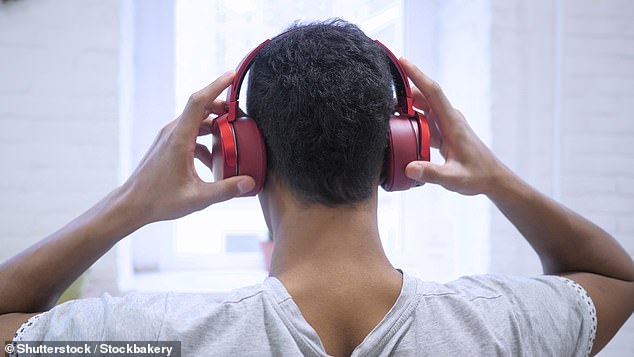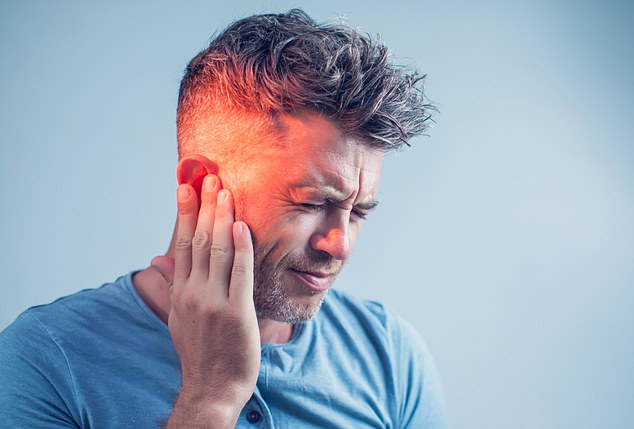<!–
<!–
<!– <!–
<!–
<!–
<!–
Headphones that exchange sounds from one ear to the other could be a radical new treatment for tinnitus, the ringing in the ears that affects around five million people in the UK.
When a noise comes from the user’s right side, it is picked up by a microphone in the headphones and redirected to the left ear. The opposite occurs with sounds that emanate from the left.
Scientists believe that mixing the direction of sound, with the eyes telling the brain that it is coming from one place but the ears indicating the opposite, helps to “rewire” the auditory nerve (which connects the ear to the brain). And this “rejects” tinnitus.

The idea for headphone treatment came from mirror therapy, which is used for phantom limb pain (File Image)


Results published in the Journal of the American Academy of Audiology in 2022 showed that 18 volunteers experienced significant improvements in their symptoms (file photo)
Results from a small trial suggest that using headphones for two hours a day for three weeks significantly reduces tinnitus. Many people suffer from temporary tinnitus, but in about one in 100, the ringing is prolonged and often combined with hearing loss.
When the ears are exposed to loud noises or infections, the small hair cells that transmit sounds to the brain become stressed and emit excessive amounts of a chemical called glutamate. This “glutamate storm” overstimulates (and eventually kills) nerve cells in the inner ear, which send sound impulses to the auditory cortex, the part of the brain that processes noise.
This leaves cells in the auditory cortex activated to constantly transmit sounds to the brain, causing people to “hear” doorbells, for example. In some cases, cells remain in this “on” state.
At this point, it is more difficult to deal with. There are no medications for it and treatments include talk therapy, which helps patients live with the condition, or sound therapy, which uses background noise to distract them.
The idea for headphone treatment came from mirror therapy, which is used for phantom limb pain, where amputees still feel pain from the removed limb. By “hiding” the affected limb behind a mirror that reflects the healthy limb and focusing on this reflection, the brain is “tricked” into believing that both limbs are intact. Studies suggest that this leads to a rewiring in the brain that reduces the perception of pain.
Scientists at Spaulding Rehabilitation Hospital in Massachusetts, US, who developed the prototype headphones, believe they work in a similar way, “rewiring” the connections between nerve cells so that they no longer register tinnitus as a real external sound. .
Results published in the Journal of the American Academy of Audiology in 2022 showed that 18 volunteers experienced significant improvements in their symptoms. A trial is now underway with 50 patients who will wear the headphones for three hours a day for three weeks, or a regular pair that plays noise in the ear closest to the noise source. Results are expected at the end of this year.
Commenting on the treatment, Dr Will Sedley, professor of neurology at Newcastle University, said: “It’s a good idea, but we need the trial results before we can say it works.” In the meantime, the only thing we know that works well for many people is talk therapy.’
